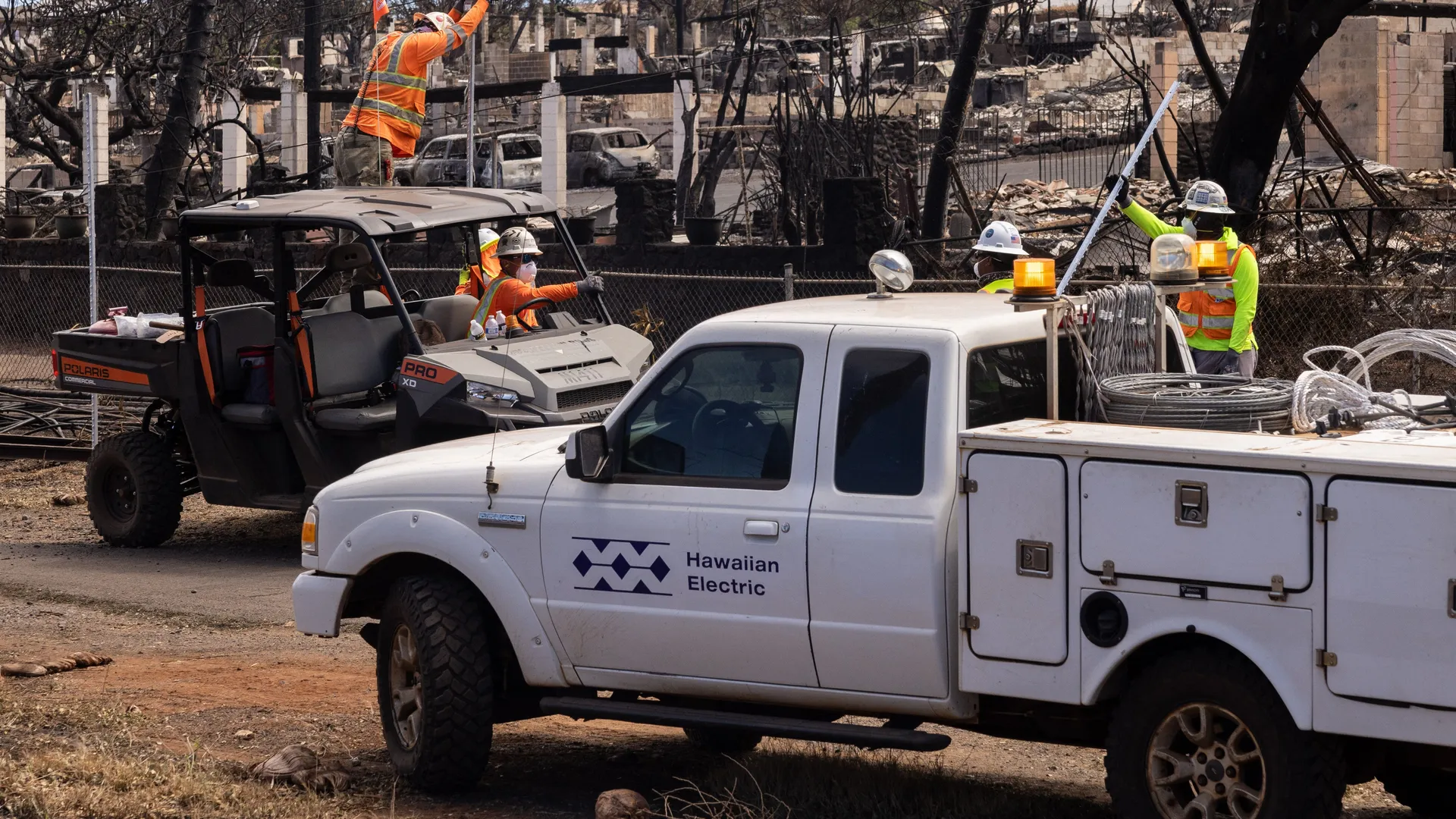Fitch downgraded Hawaiian Electric Industries’ credit rating to junk status on Monday, citing the company’s potential liability for the Maui wildfires.
The downgrade means that Hawaiian Electric is now considered a high-risk investment. The company’s shares fell 5.3% to $13.04 in trading on Monday.
Fitch said the downgrade reflects the potential for Hawaiian Electric to be liable for billions of dollars in damages if it is found to be responsible for the wildfires. The cause of the fires is still under investigation, but Hawaiian Electric has been blamed in class-action lawsuits for failing to shut off power lines despite warnings of high winds.
Moody’s and S&P Global also downgraded Hawaiian Electric to junk status last week. The company has said it is not looking to restructure, but is seeking expert advice amid investor concerns about its role in the wildfires.
The wildfires have claimed at least 114 lives and destroyed thousands of homes. They are the deadliest wildfires in Hawaii’s history.
The downgrade by Fitch is a significant blow to Hawaiian Electric, which is the largest utility in Hawaii. The company is facing a number of challenges, including the wildfires, the COVID-19 pandemic, and rising costs. It is unclear how the downgrade will affect Hawaiian Electric’s ability to operate and invest in its infrastructure.
When a credit rating agency downgrades a company’s credit rating to junk status, it means that the company is now considered a high-risk investment. This can have a number of negative consequences for the company, including:
- Higher interest rates on debt: Junk bonds are considered to be riskier than investment-grade bonds, so they typically have higher interest rates. This means that the company will have to pay more to borrow money, which can make it more difficult to finance its operations.
- Difficulty attracting new investors: Junk bonds are also less attractive to investors, so the company may have a harder time attracting new investors. This can make it more difficult for the company to raise capital, which can further restrict its ability to operate.
- Increased scrutiny from regulators: Junk bond issuers are typically subject to more scrutiny from regulators, which can add to the company’s compliance costs.
- Increased risk of default: A junk bond rating indicates that there is a higher risk of the company defaulting on its debt. This can make it more difficult for the company to do business and can lead to bankruptcy.
In the case of Hawaiian Electric Industries, the downgrade to junk status could have a significant impact on the company. The company is already facing a number of challenges, including the wildfires, the COVID-19 pandemic, and rising costs. The downgrade could make it even more difficult for the company to operate and invest in its infrastructure.
It is important to note that a credit rating downgrade is not necessarily a death sentence for a company. However, it is a serious warning sign that investors should take seriously. If you are considering investing in a company that has been downgraded to junk status, you should do your research carefully and understand the risks involved.
Shayne Heffernan









